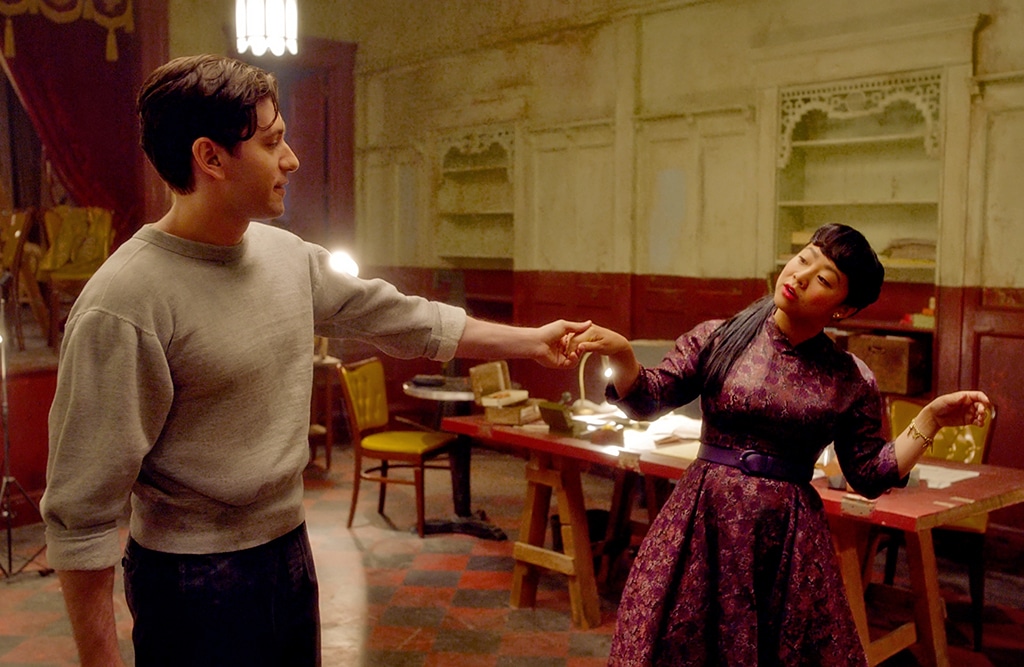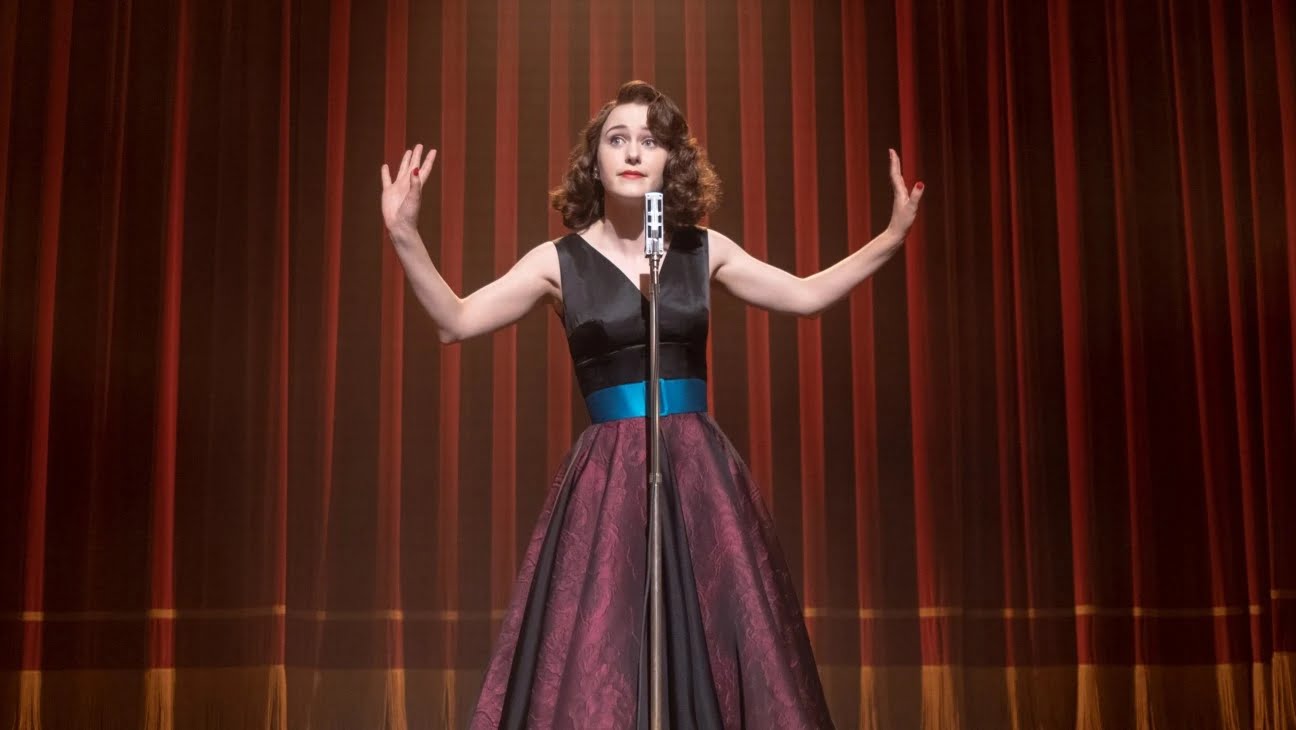Spoilers Ahead
For anyone interested in a comedy series that features a woman protagonist and meditates on challenges particular to women, The Marvelous Mrs. Maisel is an incredible starting point. The show puts feminist politics at work as our hilarious protagonist Midge navigates her journey as a comedian alongside her ever-present personal crises.
The Marvelous Mrs. Maisel is a show that traces Midge’s ascent to stardom after her separation from her husband. In Season 4, Midge purchases her old apartment from her ex-husband’s father Moishe, but struggles to come to terms with her new life as her desire for her old life clashes with her present economic realities. Besides, she remains oblivious to the series of financial exchanges operating between Susie and Joel in the background that make the purchase of the house possible in the first place. Despite getting a daily gig at The Wolford, a Manhattan club with strippers, and taking control of her expenditure, Midge’s attempts to exercise command over her finances get frequently thwarted.
Also read: Film Review Of ‘Parallel Mothers’ (2021): Messy, Beautiful And Tragic
This season, Midge departs from opening acts to seek opportunities where she can speak her mind. Following her roommate Jackie’s death, Susie vows to make it her life’s mission to find and support emerging stars whose talents get overlooked by people in their everyday life. Rose encounters an unexpected challenge in the matchmaking industry. Abe faces resistance from people for his work at The Village Voice. Joel and Mei struggle with the news of pregnancy and the prospect of introducing their relationship to Joel’s family. Lenny Bruce and Sophie Lennon make appearances.
Men continue to overwhelmingly influence the society in which The Marvelous Mrs. Maisel is based. Midge’s decision to discontinue opening acts is viewed as impractical because it’s a choice that only renowned comedians such as Lenny Bruce can make. Such a choice, however, remains inaccessible to women in comedy.
Men continue to overwhelmingly influence the society in which The Marvelous Mrs. Maisel is based. Midge’s decision to discontinue opening acts is viewed as impractical because it’s a choice that only renowned comedians such as Lenny Bruce can make. Such a choice, however, remains inaccessible to women in comedy. Further, to tranquillise the insurance representative’s suspicion about the fire’s origin and to collect her insurance money, Susie coerces her married sister to exploit the representative’s feelings for her, unknowingly leading her sister to a secretarial role at the insurance company where her professional labour is supplemented by sexual coercion directed towards her at the workplace by the insurance representative. Midge’s set in the eighth episode addresses how it is actually women who keep things going. In the must-watch routine, Midge asks, “Are women more important than god? What if we discover one day that we’re always the one in charge, just no-one told us?”
Unfortunately, the show exhibits how hopes of solidarity become increasingly questionable as women compete with each to survive in a world that refuses to acknowledge their presence and work. L Roy Dunham, a journalist, writes a series of newspaper articles critiquing Midge’s work. When Midge confronts the journalist, she is surprised to find out that the person responsible for disparaging her work is a woman. When Midge exclaims how difficult it is for women working in comedy, L Roy Dunham responds that it’s equally difficult for women in journalism to get recognised.
Rose’s precarious encounter with the matchmakers, who threaten her to stop working on account of its effect on their business, adds to the pattern of women’s reluctance to support other women. Another example is the showdown between Midge and Sophie. Solidarity fails to become a feasible strategy of extending support and resisting domination because it compromises women’s own professional and financial positionalities. It is perhaps The Wolford that departs from normative codes of social conduct and interpersonal competition to provide a space of solidarity in which the strippers and Midge carve their own ways to thrive as a collective.
But, another revelation lurks in the overarching narrative of men’s domination. In the final episode of Season 3, Midge was dropped from the famous musician Shy Baldwin’s tour. This season’s first episode details the events following her dismissal as she vents her anger on stage. The first episode, then, continues the story from the last season and subsumes plot development within Midge’s successful set, making her claim her voice in the wake of failure. Her brief deliberation on voice illustrates the importance of expression in the cultivation of agency.
At first glance, Shy’s removal of Midge from his tour appears as a problem with which we are supposed to be angry. Granted, The Marvelous Mrs. Maisel exists in a world where men dominate and dictate rules that gain normalcy and approval, while others find themselves forced to succumb to conformity. Shy’s decision does gravely impact Midge, professionally as well as financially, but it’s irresponsible to view the episode only from the lens of patriarchy.

Let’s ask ourselves once again: why did Shy dismiss her? Shy had earlier confided in Midge and revealed that he’s gay. Midge, uncertain of her performance at Apollo Theatre, promptly improvised her act to win over her audience and nearly outed Shy in the process. Midge’s actions, irrespective of the original intent, ruptured her informal contract with him, breaking his trust. Yet, in the first episode of the latest season, it is Midge, a white woman, who says, “A man has stepped in and fucked up my life.” What about the implications of nearly outing a gay black man in a comedy set and making him more vulnerable to violence and/or social boycott?
Also read: ‘Killing Eve’: Finding Catharsis In The Stories Of Messy Women
Shy had earlier confided in Midge and revealed that he’s gay. Midge, uncertain of her performance at Apollo Theatre, promptly improvised her act to win over her audience and nearly outed Shy in the process. Midge’s actions, irrespective of the original intent, ruptured her informal contract with him, breaking his trust. Yet, in the first episode of the latest season, it is Midge, a white woman, who says, “A man has stepped in and fucked up my life.” What about the implications of nearly outing a gay black man in a comedy set and making him more vulnerable to violence and/or social boycott?
Even if Midge, as a professional, is unable to come to terms with Shy’s decision, the viewers should have received the opportunity to empathise with Shy and perceive the episode with more sensitivity. Intersectionality cannot be compromised to singularly maintain the narrative of patriarchy. As discussed earlier, men in The Marvelous Mrs. Maisel impact and affect the social order in innumerable ways, making the contribution of women, among others, unknown and insignificant. However, the show’s willingness to develop its thematic concerns cannot function in absolutes and negate the axes of differentiation brought about by social markers of identity besides gender.

Susie’s increased motivation to seek more clients, with the support of her new assistant, in this season is refreshing. So is her drive to focus on overlooked artists with talent. In the context of Joel and Mei’s relationship, though problems of pregnancy and questions of race remain, it’s worth asking, especially after Moishe’s response to the relationship, if Mei’s professional training in medicine makes their inter-racial romance more acceptable. If it does, is it a result of medicine’s popularity as a profession or does it mean that professional success becomes a means to ‘compensate’ for racial difference?
The Marvelous Mrs. Maisel directly engages with questions of universal significance while remaining thoroughly engaging. Its neglect of intersectionality is, however, disappointing. Hopefully, the next season will foster a more inclusive understanding of marginalities in its navigation of Midge’s journey.
Featured image source: Hollywood Reporter
About the author(s)
Mridula Sharma is a researcher and a writer. Her work lies in the intersection of feminist theory, postcolonial studies, and popular culture.





